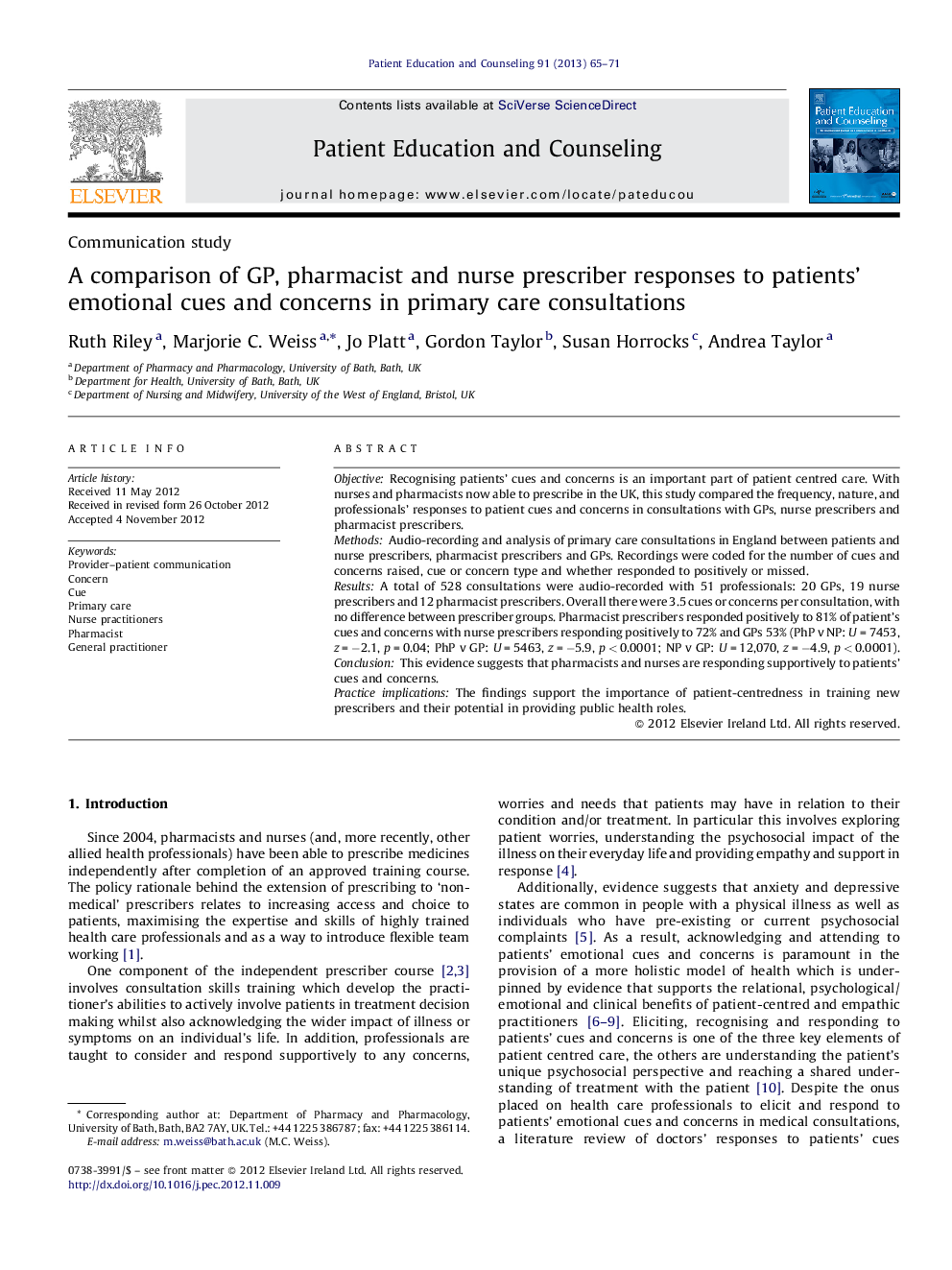| Article ID | Journal | Published Year | Pages | File Type |
|---|---|---|---|---|
| 6152521 | Patient Education and Counseling | 2013 | 7 Pages |
ObjectiveRecognising patients' cues and concerns is an important part of patient centred care. With nurses and pharmacists now able to prescribe in the UK, this study compared the frequency, nature, and professionals' responses to patient cues and concerns in consultations with GPs, nurse prescribers and pharmacist prescribers.MethodsAudio-recording and analysis of primary care consultations in England between patients and nurse prescribers, pharmacist prescribers and GPs. Recordings were coded for the number of cues and concerns raised, cue or concern type and whether responded to positively or missed.ResultsA total of 528 consultations were audio-recorded with 51 professionals: 20 GPs, 19 nurse prescribers and 12 pharmacist prescribers. Overall there were 3.5 cues or concerns per consultation, with no difference between prescriber groups. Pharmacist prescribers responded positively to 81% of patient's cues and concerns with nurse prescribers responding positively to 72% and GPs 53% (PhP v NP: U = 7453, z = â2.1, p = 0.04; PhP v GP: U = 5463, z = â5.9, p < 0.0001; NP v GP: U = 12,070, z = â4.9, p < 0.0001).ConclusionThis evidence suggests that pharmacists and nurses are responding supportively to patients' cues and concerns.Practice implicationsThe findings support the importance of patient-centredness in training new prescribers and their potential in providing public health roles.
